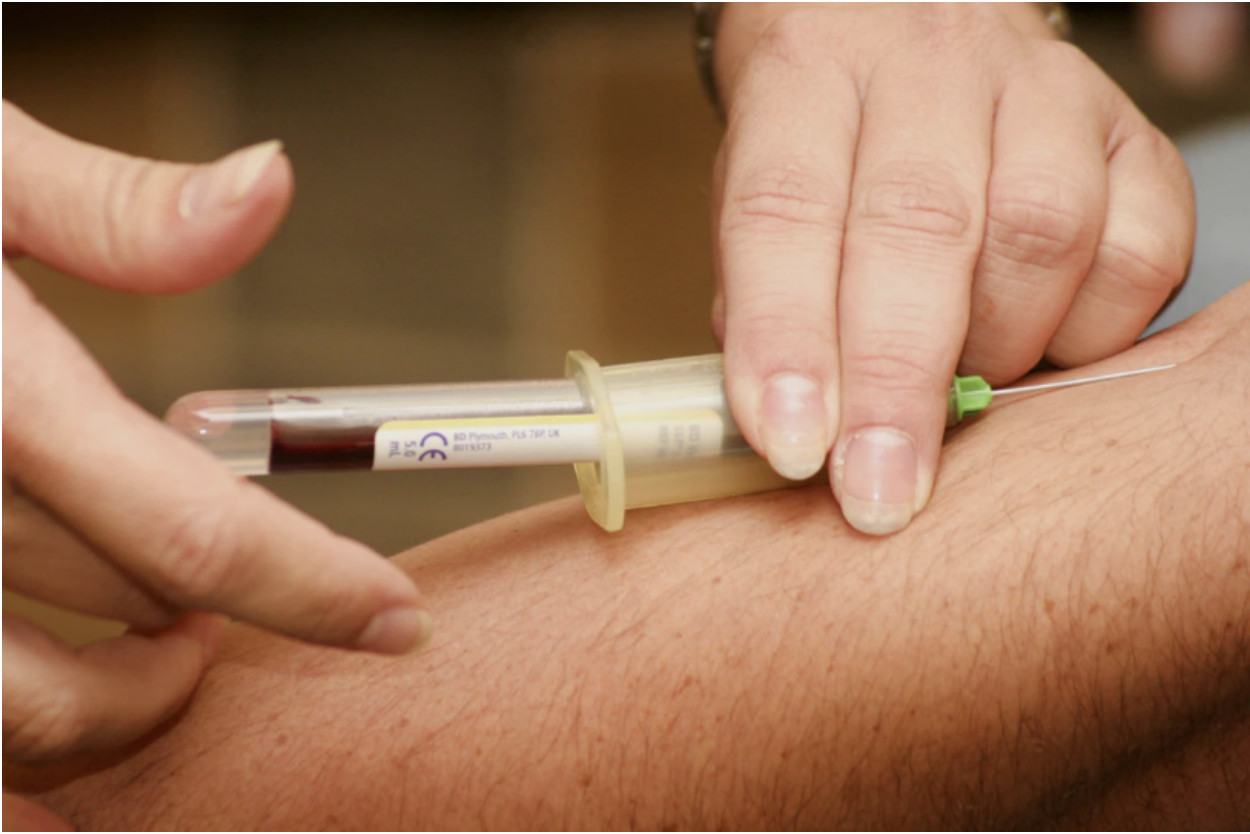
Pharmacists are allowed to prescribe specific tests at their respective pharmacies. These tests often serve to detect and prevent any symptoms or potential problems that may occur due to your treatment. Some tests pharmacies prescribe include:
-
International Normalized Ratio (INR) / standardized prothrombin time
Purpose: The INR measures how quickly your blood clots. This is especially important for patients who take medicines that make have a blood-thinning or blood-clotting effect. -
Glycemia
Purpose: This test measures a patient’s blood glucose level, which is important for those with diabetes. -
Lipid Profile
Purpose: A lipid profile test is a blood test that allows medical professionals to screen for any lipid abnormalities, notably triglycerides and cholesterol. -
Complete Blood Count (CBC)
Purpose: This blood test measures hemoglobin (red cell) and white blood cell counts, the levels of which may be low due to a certain treatment or prescription. -
Creatinine Kinase (CK)
Purpose: This test detects and, in some cases, monitors muscle damage, as increased levels of the enzyme creatinine kinase indicate muscle damage. -
Glycated Hemoglobin (HbA1c)
Purpose: The glycated hemoglobin test allows a medical professional to measure a patient’s average blood sugar level for the past few months. This test is used as a diagnostic test for diabetes and a regular test for those with diabetes. -
Electrolytes
Purpose: This blood test screens any potential problems with a patient’s electrolyte balance. -
Thyroid-Stimulating Hormone (TSH)
Purpose: This test allows a patient to see if they have hypothyroidism, hyperthyroidism, or a thyroid disorder before a patient displays any symptoms. -
Alanine Transaminase (ALT)
Purpose: The Alanine Transaminase test is able to detect liver damage. ALT levels are generally low, but if a patient’s liver is damaged or injured, the liver will release high levels of ALT. -
Creatinine
Purpose: This test measures the level of creatinine in a patient’s blood. Higher levels of creatinine indicate kidney disease or impaired kidney function, as the creatinine level in blood increases with poor kidney health.
While all of these tests may be administered at a hospital or a medical clinic, all of these tests are also able to be prescribed and administered at a pharmacy. If positive, these tests can lead to treatments and prescriptions to treat the condition. In some cases, a patient is can even order tests based on their local pharmacy’s availability and get tested at the pharmacy at a selected time and date.
With the rising demand placed on health professionals, labs and pharmacies are working to lessen the burden on health professionals at hospitals and medical clinics. Pharmacies do this by prescribing tests (as well as administering seasonal flu shots). In addition to alleviating the burden on hospitals and clinics, the earlier diagnoses and detections that these tests provide allow patients better chances of successful treatment.
*Reviewed and approved by Dr. Rob Lapporte
Are you an independent pharmacy? To learn more about myphysician360, click here! To order your first starter pack click here, and join over 400 other independent pharmacies who are striving to keep their customers healthy with myphysician360!


